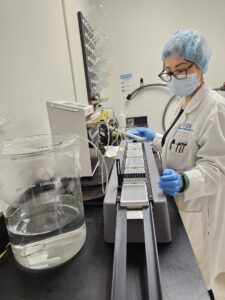EDC’s Inclusive Growth blog series highlights and celebrates local companies and organizations helping drive economic growth and progress toward San Diego’s 2030 Inclusive Growth goals.
Among the regional goals, EDC identifies increasing quality* small business jobs in San Diego as an economic imperative, with small businesses representing 99 percent of all firms in the region and accounting for 60 percent of total employment—outpacing the national average. Despite significant contributions, small businesses struggle to keep up in an increasingly expensive market.
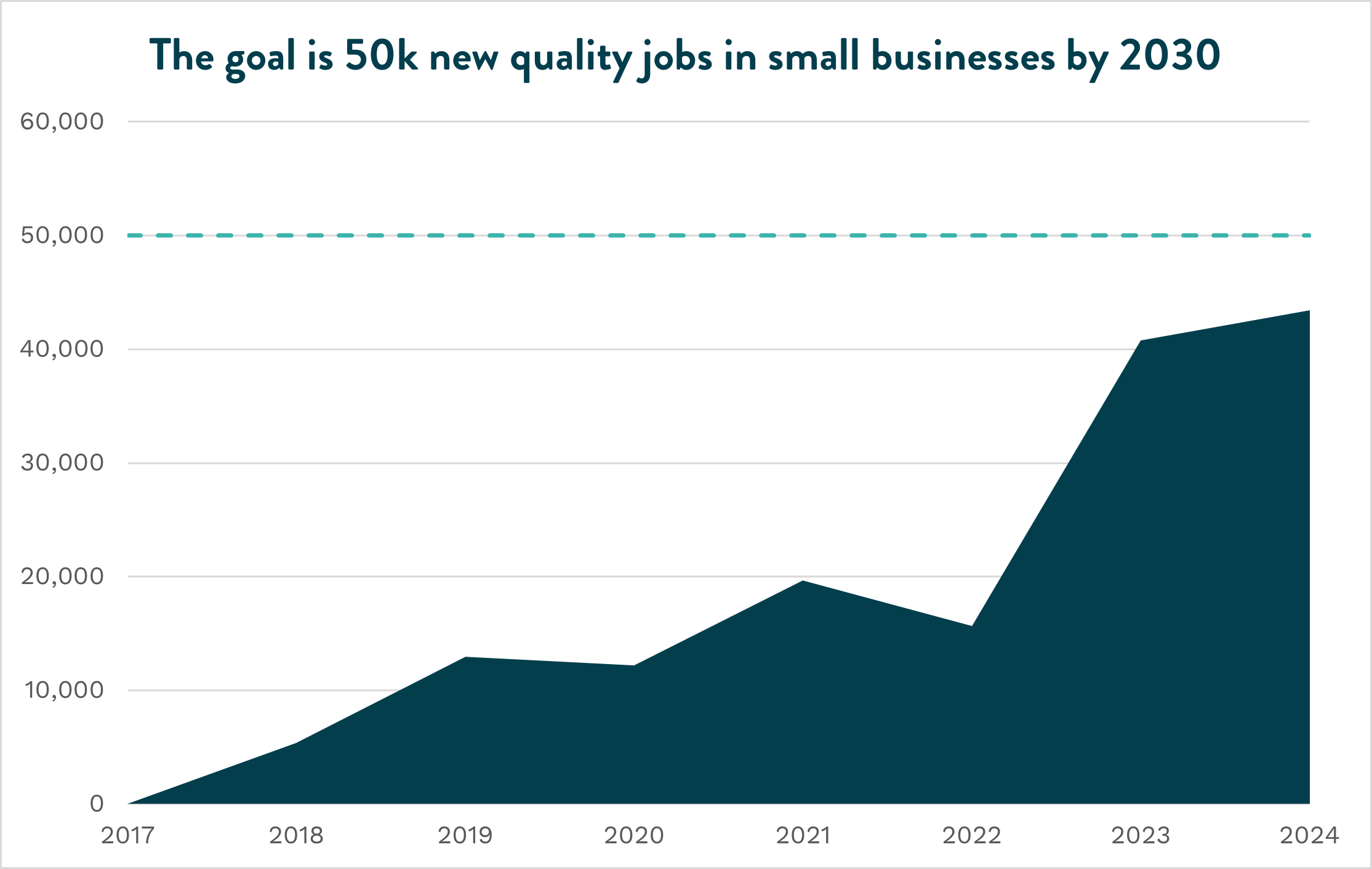
Small, localized investments can drive quality job growth in small businesses
With a goal to add 50,000 new quality jobs in small businesses by the end of the decade, the latest data shows a surge in progress after years of steady recovery. In 2024, the region added 43,449 new quality small business jobs, marking an increase of about 3,000 jobs since 2023 and the closest we have ever been to reaching the goal.
While the significant rise in quality jobs is reassuring, employer-led efforts to support small businesses remain critical to the future of the region’s economy, and San Diego Gas & Electric (SDG&E) is among the local institutions contributing to the progress.
SDG&E’s commitment to supplier diversity in procurement spending
SDG&E has been proudly powering the regional economy for more than 140 years. The company was founded in 1881 to supply gas for streetlights when the City of San Diego had a population of just over 3,000. Today, SDG&E serves 3.7 million consumers spanning 25 communities in San Diego and southern Orange counties. As an anchor institution in the region, SDG&E is committed to delivering clean, safe, and reliable energy while fostering inclusive economic growth through its supply chain.
In 2024 alone, SDG&E had nearly $3 billion in procurement spending and billions more in economic impact, fueling local businesses, creating jobs, and strengthening the regional economy. Nearly 45 percent of the utility’s total procurement spend in 2024 was with diverse suppliers, including enterprises owned by minorities, women, veterans, people with disabilities, and LGBTQ individuals. Notably, $632 million of SDG&E’s spend in 2024 was in San Diego County.
Every year, SDG&E works with hundreds of suppliers of all sizes, with a wide range of offerings to meet the needs of its diverse customer base and achieve local and statewide goals for clean energy, safety, and reliability. SDG&E’s impact extends beyond energy infrastructure; its employees give back to the community through thousands of hours of volunteerism, and donations to local nonprofits to advance economic prosperity, STEM education, and other causes. Interested in doing business with SDG&E? Fill out the Supplier Interest Form here.
How SDG&E supports job creation and growth in the region
Recognizing that local, small, and/or diverse businesses face challenges in navigating procurement processes and requirements in the energy world—including prerequisites such as insurance and safety certifications—SDG&E has a dedicated responsible sourcing team to support suppliers through that process. The team focuses on supplier engagement and development, supply chain sustainability, and supplier risk management, with the goal of creating a more competitive, innovative, and resilient supply chain.
Supplier diversity from multiple lenses
Having a diverse set of local firms varying in size and location brings different ideas to the table, which helps mitigate risks associated with group think, supplier over-consolidation, and over-concentration. SDG&E’s responsible sourcing team has contacts in industries beyond energy—so even if the utility doesn’t need your good or service, the team may know someone else who does.
“As much as possible, we try to buy local to help create jobs and support our regional economy. Our team has long prioritized an inclusive and diverse supply chain, including spending more than $1 billion last year with certified diverse businesses,” said Dan Skopec, SDG&E Senior Vice President and Chief Regulatory Officer, and EDC Board Member. “Growing our local supplier base has also become more important because of global supply chain disruptions stemming from geopolitical events and tariffs.”
Direct outreach, programs, and local partnerships support small businesses
SDG&E conducts extensive outreach to local small and/or diverse suppliers and provides technical support, often on a one-on-one basis. The team also connects suppliers with resources provided by other partner organizations to develop and support suppliers, including the Small Business Development Center (housed at Southwestern College), The Veterans In Business (VIB) Network, Women’s Business Enterprise Council (WBEC)-West, Building, and DisabilityIN, to name a few. These organizations help address challenges such as insurance barriers, access to capital, and cybersecurity requirements.
As an active participant in the company’s competitive solicitations, the responsible sourcing team conducts research to identify qualified small and diverse suppliers for consideration by primes and SDG&E business units. The effort also makes procurement opportunities more accessible to smaller suppliers, working with project teams which break large projects into smaller segments to bid them out.
Outside of its responsible sourcing program, the utility also offers support to small businesses looking to electrify their fleet or seeking energy management coaching.
SDG&E small business support:
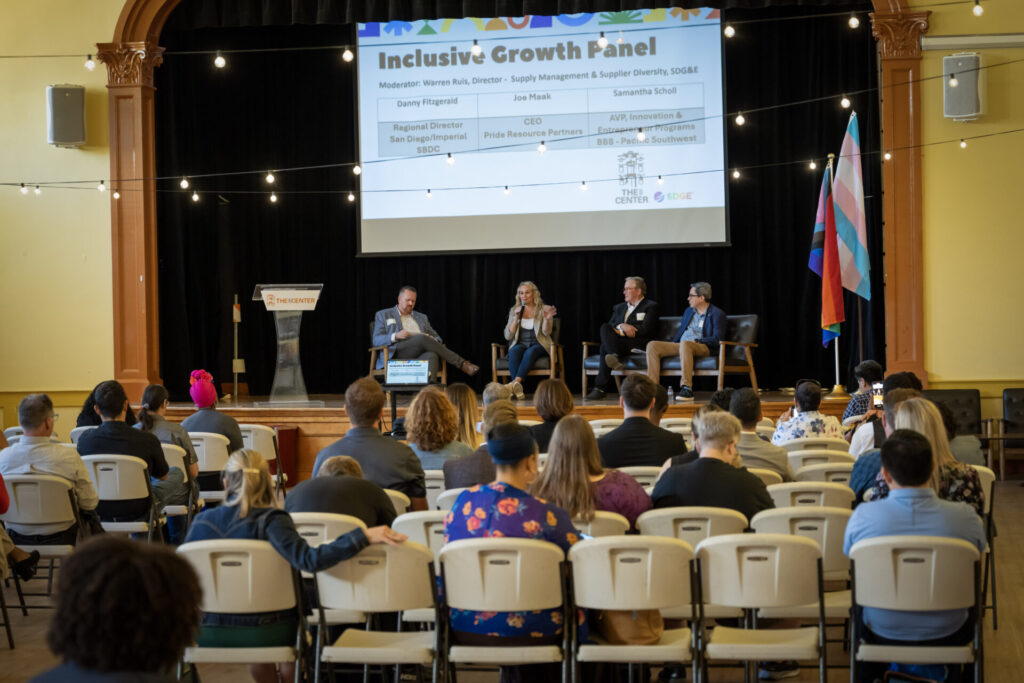
Continued investment in EDC is an investment in our community
SDG&E has been a supporter of EDC for the past 25 years. This long-standing collaboration is the result of a shared commitment to advancing economic prosperity and inclusive growth in the region. SDG&E supports EDC’s mission to mobilize business, government, and civic leaders around strategies that enhance San Diego’s global competitiveness and economic resilience. The utility proudly engages with EDC as an investor and member of the board of directors, and involves senior officers in various programs and initiatives, bringing SDG&E’s top talent to the table.
EDC’s standout programs/services for SDG&E include the Anchor Collaborative, Advancing San Diego, Community Explorer data tools, and the MetroConnect export accelerator, which provide critical infrastructure for regional growth.
Join the movement
Progress on EDC’s 2030 Inclusive Growth goals is only achievable with and through the region’s employers scaling innovative and intentional solutions. Anchor institutions like SDG&E are helping to collectively pave the way toward a more inclusive regional economy. Join us:
- Endorse the goals, and be part of the change San Diego’s economy demands.
- See full Inclusive Growth Spotlight.
- Join our Anchor Collaborative.
- Learn more about becoming an EDC investor.
*A quality small business job is defined as one provided by a company with fewer than 100 employees and that pays at least $24.48 per hour and provides healthcare benefits.
To learn more and get involved in EDC’s work, contact:

Bree Burris
Sr. Director, Communications & Community Engagement
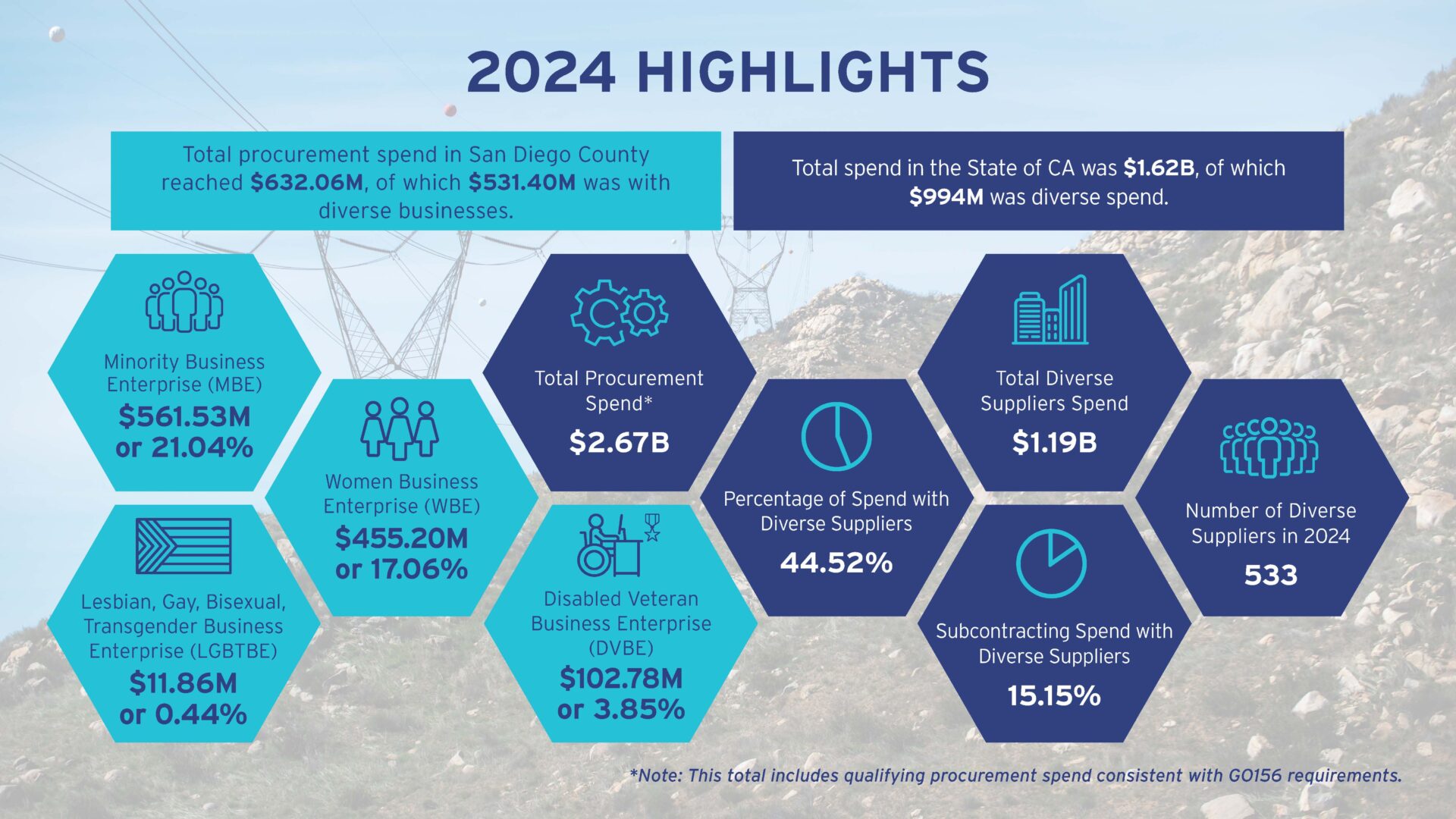



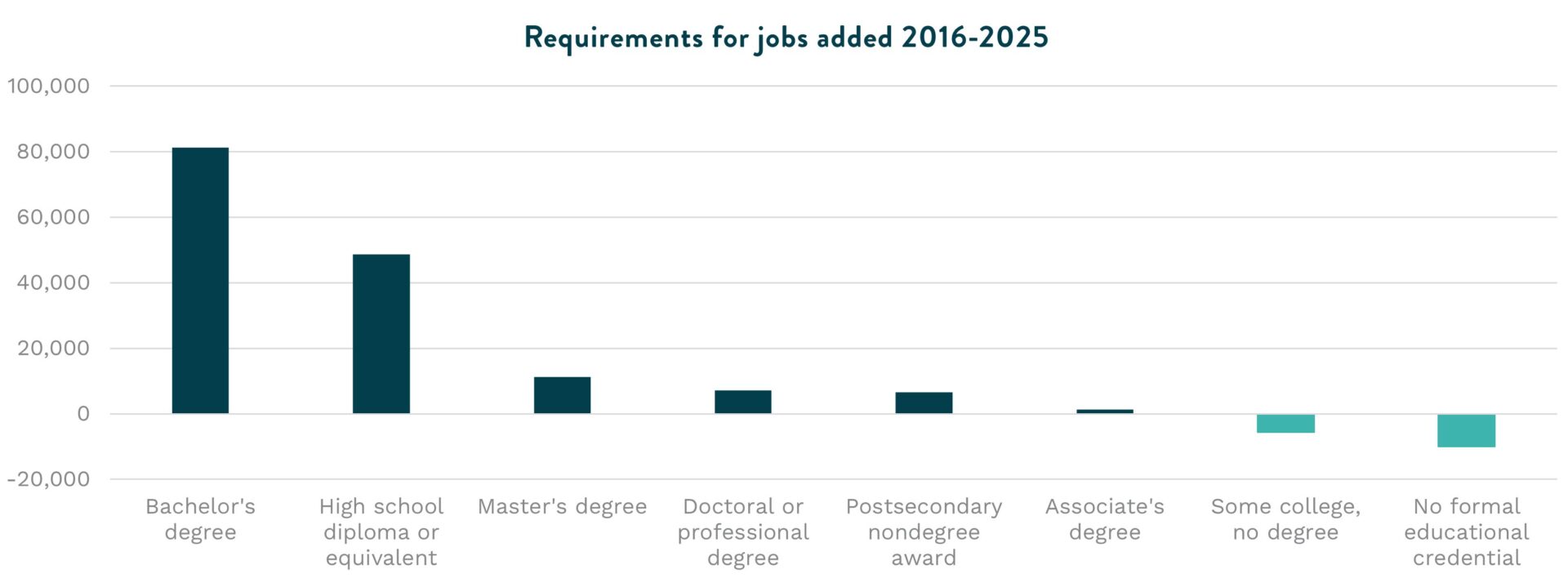
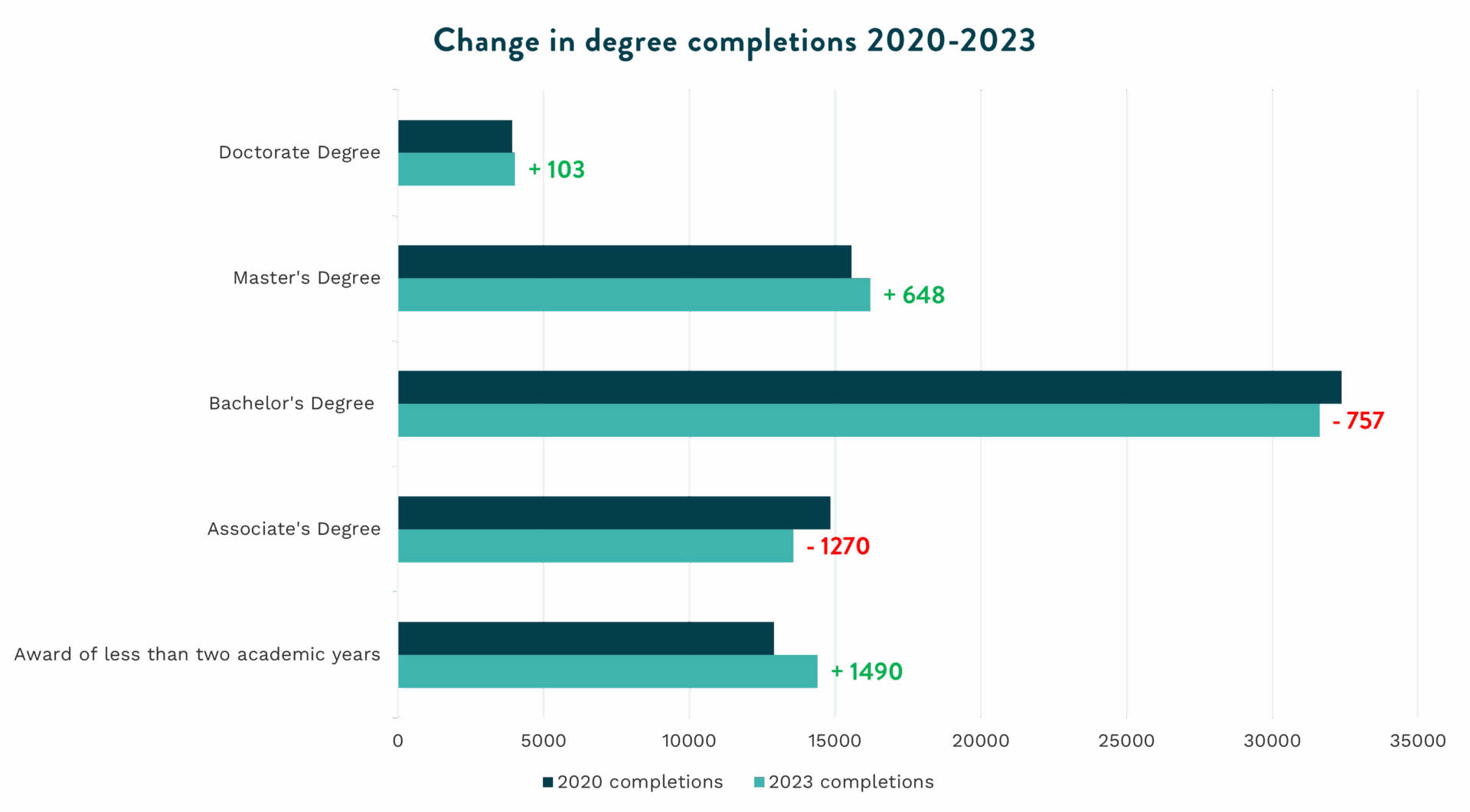

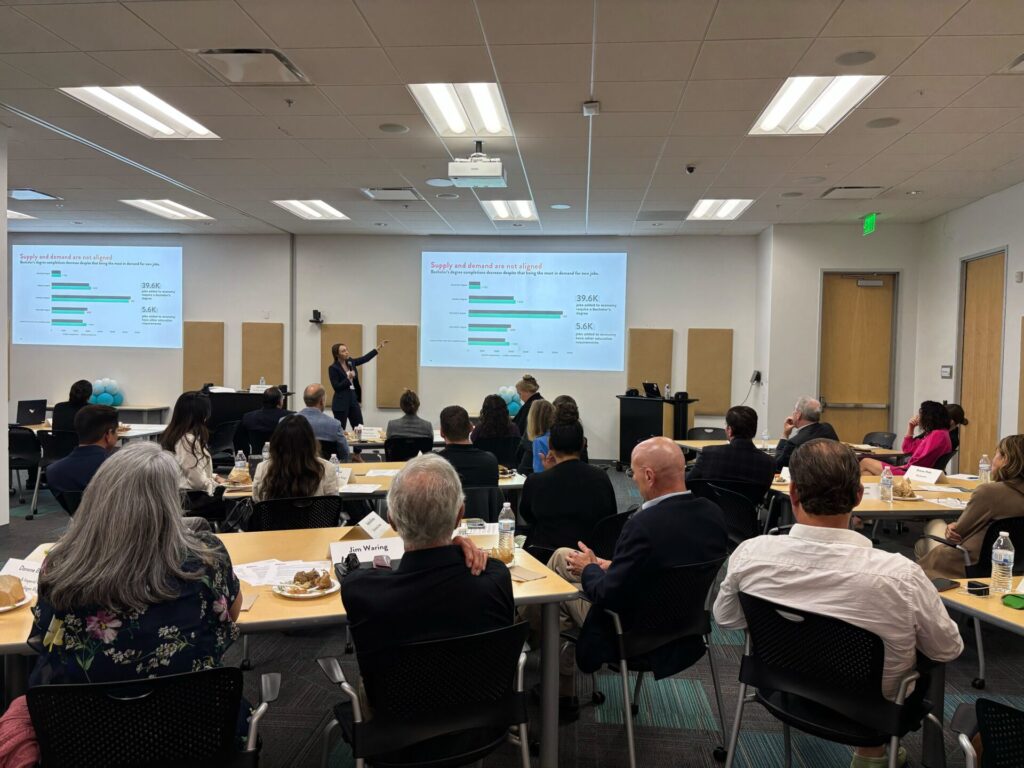


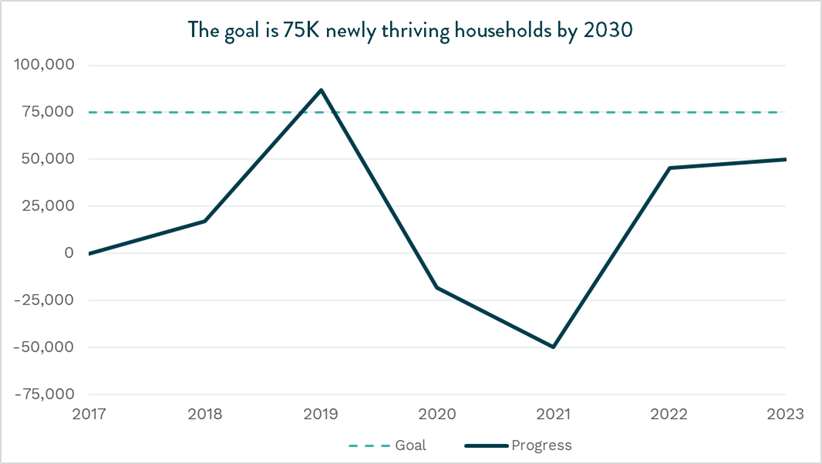


 Most of NHA’s programs are funded by federal and state grants, and as funding for programs like Head Start is challenged at the federal level, NHA continues to actively work with regional, state, and national leaders to ensure that program participants and employees are self-sufficient in supporting themselves and their families.
Most of NHA’s programs are funded by federal and state grants, and as funding for programs like Head Start is challenged at the federal level, NHA continues to actively work with regional, state, and national leaders to ensure that program participants and employees are self-sufficient in supporting themselves and their families.
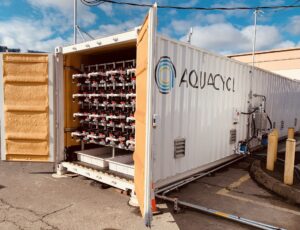
 Through the U.S. Commercial Service, a key MetroConnect partner, we were introduced to valuable contacts in new foreign markets. As a result, we secured international distribution agreements with Grand Trading (Canada), Vin Distribution (Southeast Asia), and Second Chance (UK/Western Europe).
Through the U.S. Commercial Service, a key MetroConnect partner, we were introduced to valuable contacts in new foreign markets. As a result, we secured international distribution agreements with Grand Trading (Canada), Vin Distribution (Southeast Asia), and Second Chance (UK/Western Europe).